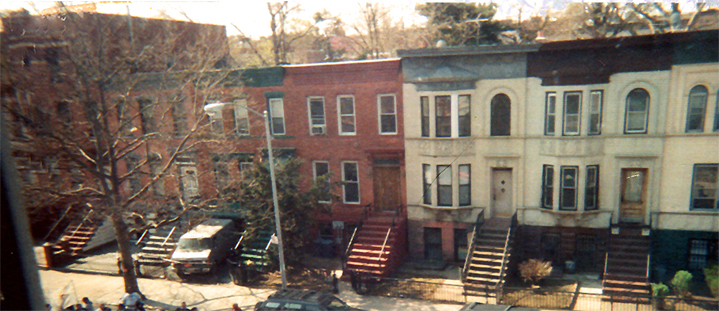Today I taught poetry to 6th-graders in Crown Heights, Brooklyn, a neighborhood of Caribbeans and Orthodox Jews, Yemenis and Central Americans. We read Cuban poet Nicolás Guillén’s “El Hambre” (“Hunger”) from his collection, The Great Zoo.
The poem starts:
Esta es el hambre. Un animal / todo colmillo y ojo. / Nadie lo engaña ni distrae.
This is hunger. An animal / all fangs and eyes. / It cannot be distracted or deceived.
“Today we are going to write metaphors comparing a feeling to an animal of your own creation,” I said after we’d read “El Hambre” in Spanish, followed by its English translation. Like me, many of my students do not speak Spanish, but I wanted to hear the poem’s original version read aloud, if even to hear the music of it.
Then we talked about why it is that Guillén had imagined hunger to be an animal made of only fangs and eyes. The fang part was easy: to eat everything with. But in all five of today’s classes, students shrugged to the question of the eyes. Then I asked if anyone’s been to an all-you-can-eat buffet when they felt like they were starving. Hands darted up.
“OK, what happens? What happens to your eyes?”
“Oh yeah!” a girl called out. “My eyes bug out. I’m not kidding!”
Then we made a list of feelings, both physical and emotional: loneliness, boredom, thirst, love, hate, hope…
One girl on loneliness: Loneliness has a big body but a small heart. It spends its time thinking about what it’s lost. It wants love. It needs happiness.
One boy wrote that confidence is a large animal with rainbow skin; another boy wrote that love lives in the jungle and is as fast as a cheetah, chasing the girl he wants. Sadness lives in a hidden place, one girl wrote. Shyness lives in a house that’s too big, wrote another. According to one child, fear can’t see anymore because he’s sewn his own eyes shut.
In between classes I saw a group of students I wouldn’t see until later in the day. “Hey!” one called out. “Ms… Ms… Wait, what’s your name?”
“Dohrmann,” I said.
“Oh yeah! Ms. Dohrmann! Poetry lady, right?”
“Poetry lady, right.”
I have been Poetry Lady in dozens of New York City schools for more than a decade. I am a little tired of being Poetry Lady. I was extra tired of being Poetry Lady today. Tired is an animal with no bones and sagging skin, I might have said if I’d written a poem along with my students. Its clothes are too big and its shoes hurt.
Then a boy wrote that fear becomes anger without realizing it.
“How’d you know that?” I asked.
He shrugged his shoulders. “Everybody knows that,” he said.
“No they don’t. Nope, they sure don’t. I think that’s an excellent observation. I really do. It’s so insightful.”
He looked over his poem. He was starting to smile.
“You appreciating your genius?” I teased.
“Nah,” he said.
“Oh no! No shame in that! I mean, that’s one of the best parts of writing—the part where you get to sit back and appreciate your genius.”
He smiled. “OK, miss,” he said.
Then one of the teacher’s assistants came over to me at the end of class to show me her poem. She needed help with a stanza on love being enslaved in her heart. Hm. We talked about whether the word “enslaved” might have been the culprit here. “Is the word ‘enslaved’ the right one?” I asked. “Maybe…I dunno…maybe you just mean ‘stuck’?”
“No,” she said, “No, it’s definitely ‘enslaved’.”
“OK, then slave to what?”
“Aye!” she shouted. “That’s it! That’s my problem! I don’t know!”
At the end of my final class, I heard a group of students argue about whether love has wings or arms.
“Wings! To fly up in the air,” one girl insisted.
“Arms to hug!” another girl said.
I wondered to myself: Why would tired need shoes at all if it has no bones? That doesn’t make sense.
Then I thought about it. Well, doesn’t tired always try, even if it’s seemingly impossible? I mean, isn’t that the essence of tired? No matter what, tired tries?
Sarah Dohrmann is a Brooklyn-based writer of literary nonfiction whose work has appeared in Harper’s Magazine, Tin House Magazine, The Iowa Review, and New York, among others. She began teaching in the schools with T&W in 2001 and currently teaches at New York University; she also independently leads a personal nonfiction writing workshop called Diving Into the Wreck. After earning her MSW in June 2023, Sarah serves as a clinical social worker in the Domestic Violence Aftercare Program at University Settlement in New York City's Lower East Side.



